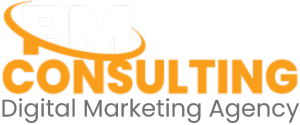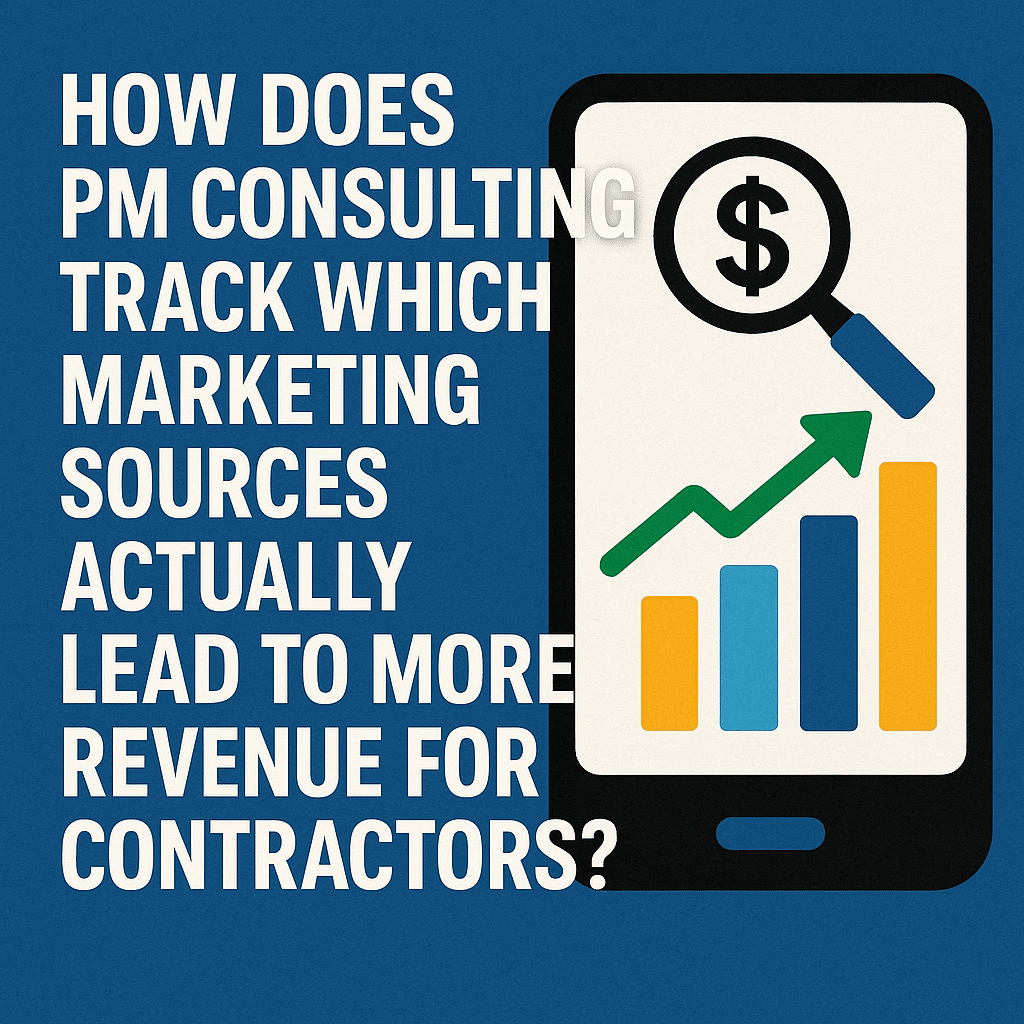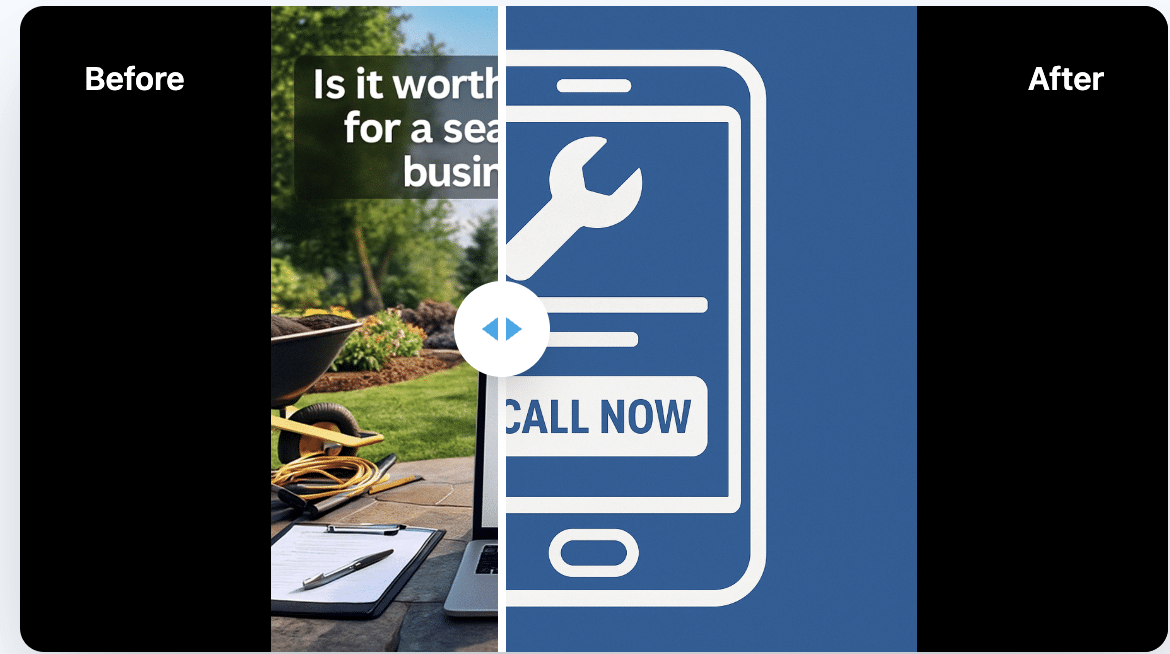Advantages of a CRM Sales and Marketing System
Maximize Your Sales Potential with a CRM Sales & Marketing System
A CRM (Customer Relationship Management) sales and marketing system is a powerful tool that businesses can utilize to streamline their sales and marketing processes. It offers numerous advantages that can greatly benefit organizations of all sizes. In this introduction, we will explore some of the key advantages of implementing a CRM sales and marketing system.
Improved Customer Relationship Management
Advantages of a CRM Sales & Marketing System
In today’s highly competitive business landscape, companies are constantly seeking ways to gain an edge over their rivals. One area that has seen significant advancements in recent years is customer relationship management (CRM). A CRM sales and marketing system is a powerful tool that can help businesses improve their customer relationships and drive sales. In this article, we will explore the advantages of implementing a CRM system and how it can enhance your overall business operations.
First and foremost, a CRM sales and marketing system allows businesses to have a centralized database of customer information. Gone are the days of scattered spreadsheets and disorganized contact lists. With a CRM system, all customer data is stored in one place, making it easily accessible to all relevant team members. This centralized database ensures that everyone in the organization has access to the most up-to-date information, enabling them to provide personalized and efficient service to customers.
Furthermore, a CRM system provides businesses with valuable insights into customer behavior and preferences. By tracking customer interactions and analyzing data, businesses can gain a deeper understanding of their customers’ needs and preferences. This information can then be used to tailor marketing campaigns and sales strategies, resulting in higher conversion rates and increased customer satisfaction. With a CRM system, businesses can identify trends, spot opportunities, and make data-driven decisions that drive growth.
Another advantage of a CRM sales and marketing system is improved communication and collaboration within the organization. With all customer information stored in one place, team members can easily share and access data, ensuring that everyone is on the same page. This seamless communication and collaboration streamline business processes, reduce duplication of efforts, and enhance overall efficiency. Whether it’s a salesperson updating a customer’s contact information or a marketing team member adding notes about a recent interaction, everyone can stay informed and work together towards a common goal.
Moreover, a CRM system enables businesses to automate repetitive tasks and workflows. Manual data entry, follow-up emails, and appointment scheduling can be time-consuming and prone to errors. With a CRM system, businesses can automate these tasks, freeing up valuable time for employees to focus on more strategic activities. Automation not only increases productivity but also ensures consistency and accuracy in customer interactions. By automating routine tasks, businesses can provide a seamless and personalized experience to customers, enhancing their overall satisfaction and loyalty.
Lastly, a CRM sales and marketing system provides businesses with the ability to measure and track their sales and marketing efforts. With built-in analytics and reporting features, businesses can monitor the effectiveness of their campaigns, identify areas for improvement, and measure their return on investment. This data-driven approach allows businesses to optimize their sales and marketing strategies, allocate resources more effectively, and achieve better results. By continuously monitoring and analyzing data, businesses can stay ahead of the competition and adapt their strategies to changing market conditions.
In conclusion, a CRM sales and marketing system offers numerous advantages for businesses looking to improve their customer relationship management. From a centralized database and valuable insights to improved communication and collaboration, automation of repetitive tasks, and the ability to measure and track performance, a CRM system is a powerful tool that can enhance overall business operations. By implementing a CRM system, businesses can strengthen their customer relationships, drive sales, and gain a competitive edge in today’s fast-paced business environment.
Enhanced Sales and Marketing Collaboration

Advantages of a CRM Sales & Marketing System
Enhanced Sales and Marketing Collaboration
In today’s competitive business landscape, effective collaboration between sales and marketing teams is crucial for success. A CRM (Customer Relationship Management) sales and marketing system can greatly enhance this collaboration, leading to improved efficiency, increased revenue, and better customer satisfaction.
One of the key advantages of a CRM system is that it provides a centralized platform for both sales and marketing teams to work together. This eliminates the silos that often exist between these two departments, allowing for seamless communication and collaboration. With a CRM system, sales and marketing teams can easily share information, track leads, and coordinate their efforts to maximize the impact of their campaigns.
Furthermore, a CRM system enables sales and marketing teams to have a unified view of the customer journey. By integrating data from various touchpoints, such as website visits, email interactions, and social media engagement, a CRM system provides a comprehensive understanding of each customer’s preferences, needs, and behaviors. This holistic view allows sales and marketing teams to tailor their messages and offers to individual customers, resulting in more personalized and effective marketing campaigns.
In addition, a CRM system facilitates the alignment of sales and marketing goals. By providing real-time visibility into sales performance and marketing activities, a CRM system enables both teams to have a clear understanding of their shared objectives. This alignment fosters a sense of collaboration and accountability, as sales and marketing teams work together towards common goals. With a CRM system, sales and marketing teams can easily track the progress of their campaigns, identify areas for improvement, and make data-driven decisions to optimize their strategies.
Moreover, a CRM system enhances lead management and nurturing. With a CRM system, sales and marketing teams can efficiently track and manage leads throughout the entire sales funnel. From the initial contact to the final sale, a CRM system provides a systematic approach to lead management, ensuring that no leads fall through the cracks. By automating lead nurturing processes, such as sending personalized follow-up emails or scheduling sales calls, a CRM system helps sales and marketing teams stay engaged with prospects and move them closer to a purchase decision.
Furthermore, a CRM system enables sales and marketing teams to measure and analyze the effectiveness of their campaigns. By tracking key performance indicators (KPIs) such as conversion rates, customer acquisition costs, and customer lifetime value, a CRM system provides valuable insights into the ROI (Return on Investment) of marketing efforts. This data-driven approach allows sales and marketing teams to identify what works and what doesn’t, enabling them to refine their strategies and allocate resources more effectively.
In conclusion, a CRM sales and marketing system offers numerous advantages for enhancing collaboration between sales and marketing teams. By providing a centralized platform, a unified view of the customer journey, and real-time visibility into performance, a CRM system enables sales and marketing teams to work together more efficiently and effectively. With improved collaboration, businesses can expect increased revenue, better customer satisfaction, and a competitive edge in the market. Therefore, investing in a CRM system is a wise decision for any organization looking to optimize its sales and marketing efforts.
Streamlined Lead Management Process
A CRM sales and marketing system offers numerous advantages for businesses, one of which is a streamlined lead management process. This system allows businesses to effectively manage and track leads from the initial contact to the final sale, ensuring that no potential customer falls through the cracks.
One of the key advantages of a CRM sales and marketing system is its ability to centralize all lead information in one place. With this system, businesses can easily access and update lead data, eliminating the need for multiple spreadsheets or disparate systems. This centralized approach not only saves time but also ensures that all team members have access to the most up-to-date information, enabling them to provide a consistent and personalized experience to leads.
Furthermore, a CRM sales and marketing system provides businesses with the tools to automate various lead management tasks. For instance, businesses can set up automated email campaigns to nurture leads and keep them engaged throughout the sales process. This automation not only saves time but also ensures that leads receive timely and relevant information, increasing the chances of conversion.
In addition to automation, a CRM sales and marketing system also offers advanced lead scoring capabilities. Lead scoring allows businesses to assign a value to each lead based on their level of engagement and likelihood of conversion. This scoring system helps businesses prioritize leads and focus their efforts on those with the highest potential, increasing efficiency and maximizing sales opportunities.
Another advantage of a CRM sales and marketing system is its ability to track and analyze lead behavior. With this system, businesses can monitor how leads interact with their website, emails, and other marketing materials. This valuable data provides insights into lead preferences and interests, allowing businesses to tailor their marketing efforts accordingly. By understanding what resonates with leads, businesses can deliver targeted and personalized content, increasing the chances of conversion.
Furthermore, a CRM sales and marketing system enables businesses to track the effectiveness of their marketing campaigns. By analyzing data such as open rates, click-through rates, and conversion rates, businesses can identify which campaigns are generating the most leads and revenue. This information allows businesses to optimize their marketing strategies and allocate resources to the most effective channels, resulting in a higher return on investment.
Lastly, a CRM sales and marketing system facilitates collaboration and communication among team members. With this system, team members can easily share lead information, notes, and tasks, ensuring that everyone is on the same page. This collaborative approach not only improves efficiency but also enhances the overall customer experience. When team members have access to all relevant information, they can provide a seamless and personalized experience to leads, increasing customer satisfaction and loyalty.
In conclusion, a CRM sales and marketing system offers numerous advantages for businesses, particularly in streamlining the lead management process. From centralizing lead information to automating tasks and analyzing data, this system provides businesses with the tools they need to effectively manage and convert leads. By implementing a CRM sales and marketing system, businesses can improve efficiency, increase sales opportunities, and deliver a superior customer experience.
Increased Sales Productivity and Efficiency
Advantages of a CRM Sales & Marketing System
Increased Sales Productivity and Efficiency
In today’s competitive business landscape, companies are constantly seeking ways to improve their sales productivity and efficiency. One tool that has proven to be highly effective in achieving this goal is a CRM (Customer Relationship Management) sales and marketing system. By implementing a CRM system, businesses can streamline their sales processes, enhance customer relationships, and ultimately drive revenue growth.
One of the key advantages of a CRM sales and marketing system is the ability to centralize and organize customer data. In traditional sales approaches, customer information is often scattered across various platforms and departments, making it difficult for sales teams to access and utilize this data effectively. With a CRM system, all customer data is stored in a centralized database, allowing sales representatives to easily access and update information in real-time. This not only saves time but also ensures that sales teams have the most up-to-date and accurate information at their fingertips.
Furthermore, a CRM system enables businesses to automate repetitive and time-consuming tasks, freeing up sales representatives to focus on more strategic activities. For instance, instead of manually inputting data or generating reports, a CRM system can automatically capture and analyze customer interactions, track sales activities, and generate insightful reports. This automation not only increases sales productivity but also reduces the risk of human error, ensuring that sales teams can make data-driven decisions and prioritize their efforts effectively.
In addition to streamlining sales processes, a CRM sales and marketing system also enhances customer relationships. By having a comprehensive view of each customer’s interactions and preferences, sales representatives can personalize their approach and provide tailored solutions. This level of personalization not only improves customer satisfaction but also increases the likelihood of repeat business and referrals. Moreover, a CRM system allows businesses to track and manage customer interactions across multiple channels, such as email, phone calls, and social media. This holistic view of customer interactions enables sales teams to identify trends, anticipate customer needs, and proactively engage with prospects and existing customers.
Another advantage of a CRM sales and marketing system is the ability to track and measure sales performance. By capturing and analyzing data on sales activities, conversion rates, and revenue, businesses can gain valuable insights into their sales processes and identify areas for improvement. For instance, a CRM system can provide visibility into the effectiveness of different marketing campaigns, allowing businesses to allocate resources to the most successful initiatives. Additionally, by tracking sales performance, businesses can identify top-performing sales representatives and replicate their strategies across the team, further driving sales productivity and efficiency.
In conclusion, a CRM sales and marketing system offers numerous advantages for businesses looking to increase sales productivity and efficiency. By centralizing customer data, automating repetitive tasks, and enhancing customer relationships, businesses can streamline their sales processes and drive revenue growth. Furthermore, the ability to track and measure sales performance enables businesses to make data-driven decisions and continuously improve their sales strategies. In today’s competitive business environment, implementing a CRM system is not just a luxury but a necessity for companies looking to stay ahead of the competition and achieve sustainable growth.
Personalized Marketing Campaigns
Advantages of a CRM Sales & Marketing System
In today’s highly competitive business landscape, companies are constantly seeking ways to gain a competitive edge. One area that has seen significant advancements in recent years is customer relationship management (CRM) systems. These systems have revolutionized the way businesses interact with their customers, enabling them to personalize marketing campaigns and drive sales. In this article, we will explore the advantages of using a CRM sales and marketing system, with a particular focus on personalized marketing campaigns.
One of the key advantages of a CRM sales and marketing system is the ability to gather and analyze customer data. By capturing and storing information about customer preferences, purchase history, and demographics, businesses can gain valuable insights into their target audience. This data can then be used to create highly targeted and personalized marketing campaigns. For example, a clothing retailer can use CRM data to send tailored promotions to customers based on their past purchases or browsing behavior. This level of personalization not only increases the chances of a sale but also enhances the overall customer experience.
Furthermore, a CRM system allows businesses to automate their marketing efforts. With the ability to segment customers based on various criteria, such as location or buying behavior, companies can set up automated email campaigns that deliver the right message to the right audience at the right time. This not only saves time and resources but also ensures that marketing efforts are consistently targeted and effective. By automating repetitive tasks, businesses can focus on more strategic initiatives, such as developing new products or expanding into new markets.
Another advantage of a CRM sales and marketing system is the ability to track and measure campaign performance. With built-in analytics and reporting features, businesses can easily monitor the success of their marketing efforts. This allows them to identify what works and what doesn’t, enabling them to make data-driven decisions and optimize their campaigns for better results. For instance, if a particular email campaign is not generating the desired response, businesses can quickly identify the issue and make necessary adjustments to improve its effectiveness. This level of visibility and control is crucial in today’s fast-paced business environment.
Moreover, a CRM system facilitates collaboration and communication between sales and marketing teams. By centralizing customer data and campaign information, both teams can work together seamlessly to achieve common goals. For example, sales teams can provide valuable feedback on the effectiveness of marketing campaigns, enabling marketers to refine their strategies and messaging. This collaboration not only improves the overall efficiency of the sales and marketing process but also enhances the customer experience by ensuring consistent messaging across all touchpoints.
In conclusion, a CRM sales and marketing system offers numerous advantages, particularly in the realm of personalized marketing campaigns. By leveraging customer data, automating marketing efforts, tracking campaign performance, and facilitating collaboration between sales and marketing teams, businesses can create highly targeted and effective marketing campaigns that drive sales and enhance the customer experience. In today’s competitive business landscape, investing in a CRM system is no longer a luxury but a necessity for companies looking to stay ahead of the curve.
Effective Customer Segmentation
Advantages of a CRM Sales & Marketing System
Effective Customer Segmentation
In today’s highly competitive business landscape, companies are constantly seeking ways to gain a competitive edge. One of the most effective strategies for achieving this is through effective customer segmentation. By dividing their customer base into distinct groups based on various characteristics, companies can tailor their marketing efforts to better meet the needs and preferences of each segment. This is where a CRM sales and marketing system can prove to be invaluable.
A CRM sales and marketing system is a software solution that allows companies to manage and analyze customer data in a centralized and organized manner. It provides a comprehensive view of each customer, including their purchase history, preferences, and interactions with the company. This wealth of information enables companies to segment their customer base effectively and target their marketing efforts accordingly.
One of the key advantages of using a CRM sales and marketing system for customer segmentation is the ability to identify high-value customers. By analyzing customer data, companies can identify those customers who have the highest potential for generating revenue. These customers can then be targeted with personalized marketing campaigns, offering them exclusive discounts or rewards to encourage repeat purchases. This targeted approach not only increases customer loyalty but also maximizes the return on investment for marketing efforts.
Furthermore, a CRM sales and marketing system allows companies to identify and target new customer segments. By analyzing customer data, companies can identify patterns and trends that may indicate the presence of untapped market segments. For example, they may discover that a certain demographic group has shown an increased interest in their products or services. Armed with this information, companies can develop targeted marketing campaigns to attract these new customer segments, thereby expanding their customer base and increasing their market share.
Another advantage of using a CRM sales and marketing system for customer segmentation is the ability to personalize marketing messages. By understanding the preferences and behaviors of each customer segment, companies can tailor their marketing messages to resonate with each group. This personalized approach not only increases the effectiveness of marketing campaigns but also enhances the overall customer experience. Customers feel valued and understood when they receive marketing messages that are relevant to their needs and interests, leading to increased engagement and loyalty.
In addition to personalized marketing messages, a CRM sales and marketing system also enables companies to deliver targeted offers and promotions. By analyzing customer data, companies can identify the specific needs and preferences of each customer segment. Armed with this knowledge, they can create targeted offers and promotions that are tailored to the unique needs of each group. This not only increases the likelihood of conversion but also enhances the customer experience by providing them with relevant and timely offers.
In conclusion, effective customer segmentation is a crucial strategy for companies looking to gain a competitive edge in today’s business landscape. A CRM sales and marketing system provides companies with the tools and insights needed to segment their customer base effectively. By identifying high-value customers, targeting new customer segments, personalizing marketing messages, and delivering targeted offers, companies can maximize the effectiveness of their marketing efforts and enhance the overall customer experience. With these advantages, it is clear that a CRM sales and marketing system is an invaluable tool for companies looking to achieve success in today’s highly competitive market.
Real-time Sales and Marketing Analytics
Advantages of a CRM Sales & Marketing System
In today’s fast-paced business environment, staying ahead of the competition is crucial. One way to gain a competitive edge is by utilizing a CRM sales and marketing system. This powerful tool offers numerous advantages, including real-time sales and marketing analytics.
Real-time sales and marketing analytics provide businesses with valuable insights into their customers’ behavior and preferences. By tracking and analyzing data in real-time, companies can make informed decisions and tailor their sales and marketing strategies accordingly.
One of the key advantages of real-time analytics is the ability to monitor sales performance in real-time. With a CRM system, sales managers can access up-to-date information on sales activities, such as the number of leads generated, deals closed, and revenue generated. This allows them to identify trends and patterns, and make adjustments to their sales strategies as needed.
Real-time analytics also enable businesses to track the effectiveness of their marketing campaigns. By analyzing data on customer engagement, website traffic, and conversion rates, companies can determine which marketing initiatives are driving the most results. This information can then be used to optimize marketing efforts and allocate resources more effectively.
Furthermore, real-time analytics provide businesses with a deeper understanding of their customers. By analyzing data on customer demographics, preferences, and purchase history, companies can create more targeted and personalized marketing campaigns. This not only improves customer satisfaction but also increases the likelihood of repeat business and customer loyalty.
Another advantage of real-time analytics is the ability to identify and address potential issues before they escalate. By monitoring customer feedback and sentiment in real-time, businesses can quickly identify any negative trends or issues and take immediate action to resolve them. This proactive approach not only helps to maintain customer satisfaction but also prevents potential damage to the company’s reputation.
Real-time analytics also enable businesses to stay ahead of market trends and changes. By monitoring industry news, competitor activities, and customer feedback in real-time, companies can identify emerging trends and adjust their sales and marketing strategies accordingly. This allows them to capitalize on new opportunities and stay ahead of the competition.
In addition to these advantages, real-time analytics also offer businesses the ability to measure the ROI of their sales and marketing efforts. By tracking key performance indicators (KPIs) such as customer acquisition cost, customer lifetime value, and marketing ROI, companies can determine the effectiveness of their strategies and make data-driven decisions to optimize their return on investment.
In conclusion, a CRM sales and marketing system with real-time analytics offers numerous advantages for businesses. From monitoring sales performance and tracking marketing effectiveness to gaining a deeper understanding of customers and staying ahead of market trends, real-time analytics provide valuable insights that can drive business growth and success. By leveraging the power of real-time analytics, companies can make informed decisions, optimize their strategies, and gain a competitive edge in today’s dynamic business landscape.
Enhanced Customer Service and Support
Advantages of a CRM Sales & Marketing System
Enhanced Customer Service and Support
In today’s highly competitive business landscape, providing exceptional customer service and support is crucial for any organization. Customers have come to expect personalized experiences and prompt responses to their inquiries. This is where a CRM (Customer Relationship Management) sales and marketing system can be a game-changer. By implementing a CRM system, businesses can significantly enhance their customer service and support, leading to increased customer satisfaction and loyalty.
One of the key advantages of a CRM system is its ability to centralize customer information. With a CRM system in place, all customer data, including contact details, purchase history, and communication records, can be stored in a single, easily accessible location. This eliminates the need for employees to search through multiple systems or files to find the information they need. Instead, they can quickly retrieve the necessary data from the CRM system, enabling them to provide more efficient and personalized customer service.
Moreover, a CRM system allows businesses to track and manage customer interactions effectively. Every interaction, whether it’s a phone call, email, or social media message, can be logged in the CRM system. This enables employees to have a complete view of the customer’s journey and previous interactions, allowing them to provide more informed and personalized support. For example, if a customer contacts the support team with an issue, the support representative can quickly access the customer’s history in the CRM system to understand their previous concerns and provide a tailored solution.
Additionally, a CRM system can automate various customer service processes, further enhancing efficiency and effectiveness. For instance, businesses can set up automated email responses to acknowledge customer inquiries or provide updates on their requests. This ensures that customers receive timely and consistent communication, even during peak periods when manual responses may be delayed. Furthermore, a CRM system can automate task assignments, ensuring that customer inquiries are promptly assigned to the appropriate team member, reducing response times and improving overall customer satisfaction.
Furthermore, a CRM system can facilitate proactive customer service and support. By analyzing customer data and behavior patterns, businesses can identify potential issues or opportunities and take proactive measures to address them. For example, if a customer’s purchase history indicates that they may be interested in a particular product or service, the CRM system can trigger automated notifications to the sales team, prompting them to reach out to the customer with relevant offers or recommendations. This proactive approach not only enhances the customer’s experience but also increases the likelihood of upselling or cross-selling opportunities.
In conclusion, a CRM sales and marketing system offers numerous advantages when it comes to enhancing customer service and support. By centralizing customer information, tracking interactions, and automating processes, businesses can provide more efficient and personalized support, leading to increased customer satisfaction and loyalty. Additionally, a CRM system enables proactive customer service, allowing businesses to identify and address customer needs before they become problems. In today’s competitive business environment, investing in a CRM system is a wise decision for any organization looking to elevate their customer service and support capabilities.
Improved Sales Forecasting and Reporting
Advantages of a CRM Sales & Marketing System
Improved Sales Forecasting and Reporting
In today’s competitive business landscape, accurate sales forecasting and reporting are crucial for the success of any organization. A CRM (Customer Relationship Management) sales and marketing system offers numerous advantages in this area, providing businesses with the tools they need to make informed decisions and drive growth.
One of the key advantages of a CRM system is its ability to improve sales forecasting. By capturing and analyzing data from various sources, such as customer interactions, purchase history, and market trends, a CRM system can provide valuable insights into future sales performance. This allows businesses to anticipate demand, allocate resources effectively, and make strategic decisions to maximize revenue.
Furthermore, a CRM system enables businesses to generate detailed sales reports with ease. These reports provide a comprehensive overview of sales activities, including revenue generated, customer acquisition and retention rates, and sales team performance. With this information at their fingertips, sales managers can identify areas of improvement, set realistic targets, and track progress towards achieving them.
The accuracy and reliability of sales forecasting and reporting are greatly enhanced by the integration of a CRM system with other business tools. For instance, when a CRM system is integrated with an ERP (Enterprise Resource Planning) system, sales data can be seamlessly synchronized with inventory and production data. This integration allows businesses to accurately forecast sales based on real-time inventory levels, ensuring that they can meet customer demand without overstocking or understocking.
Moreover, a CRM system can also integrate with marketing automation tools, providing a holistic view of the entire sales and marketing process. By tracking customer interactions across multiple channels, such as email, social media, and website visits, a CRM system can identify patterns and trends that can inform marketing strategies. This integration enables businesses to align their sales and marketing efforts, ensuring that they are targeting the right customers with the right messages at the right time.
Another advantage of a CRM system is its ability to improve collaboration and communication within the sales team. By centralizing customer data and interactions, a CRM system allows sales representatives to access and update information in real-time. This eliminates the need for manual data entry and reduces the risk of errors or duplication. With a CRM system, sales representatives can easily collaborate with colleagues, share insights, and coordinate efforts to close deals more efficiently.
Furthermore, a CRM system can provide sales representatives with valuable insights into customer preferences and behaviors. By analyzing customer data, such as purchase history, browsing patterns, and demographic information, a CRM system can generate personalized recommendations and suggestions. This enables sales representatives to tailor their approach to individual customers, increasing the likelihood of a successful sale.
In conclusion, a CRM sales and marketing system offers numerous advantages in terms of improved sales forecasting and reporting. By capturing and analyzing data from various sources, integrating with other business tools, and facilitating collaboration and communication within the sales team, a CRM system provides businesses with the tools they need to make informed decisions and drive growth. With accurate sales forecasting and detailed sales reports, businesses can set realistic targets, allocate resources effectively, and track progress towards achieving their goals. By leveraging the power of a CRM system, businesses can gain a competitive edge in today’s dynamic marketplace.
Scalability and Growth Opportunities
Advantages of a CRM Sales & Marketing System
Scalability and Growth Opportunities
In today’s competitive business landscape, companies are constantly seeking ways to scale their operations and seize growth opportunities. One powerful tool that can help achieve these goals is a CRM sales and marketing system. This article will explore the advantages of implementing such a system, with a particular focus on scalability and growth opportunities.
First and foremost, a CRM sales and marketing system provides businesses with the ability to scale their operations seamlessly. As a company grows, it becomes increasingly challenging to manage customer relationships and track sales activities manually. With a CRM system in place, businesses can automate various tasks, such as lead generation, customer segmentation, and sales forecasting. This automation not only saves time and resources but also ensures that critical information is readily available to the sales and marketing teams.
Furthermore, a CRM system enables businesses to streamline their sales and marketing processes, which is essential for scaling operations. By centralizing customer data and integrating it with various communication channels, such as email, social media, and phone calls, businesses can ensure consistent and personalized interactions with their customers. This level of consistency and personalization is crucial for building strong customer relationships and driving sales growth.
Another advantage of a CRM sales and marketing system is its ability to provide businesses with valuable insights and analytics. By tracking customer interactions, purchase history, and demographic data, businesses can gain a deeper understanding of their target audience. This knowledge allows companies to tailor their marketing campaigns and sales strategies to specific customer segments, increasing the chances of success. Additionally, CRM systems often come with built-in reporting and analytics tools, which provide real-time data on sales performance, customer satisfaction, and marketing ROI. These insights enable businesses to make data-driven decisions and identify areas for improvement, ultimately driving growth.
Moreover, a CRM system facilitates collaboration and communication within the sales and marketing teams, which is crucial for scaling operations. By providing a centralized platform for sharing customer information, tracking sales activities, and managing leads, a CRM system eliminates silos and promotes cross-functional collaboration. This collaboration not only improves efficiency but also enhances the overall customer experience. When sales and marketing teams have access to the same information, they can work together to deliver consistent messaging and provide a seamless customer journey, ultimately driving customer loyalty and revenue growth.
Lastly, a CRM sales and marketing system offers businesses the flexibility to adapt and grow in a rapidly changing market. With the ability to customize workflows, automate processes, and integrate with other business systems, companies can easily tailor the CRM system to their unique needs and scale as their requirements evolve. Whether it’s expanding into new markets, launching new products, or entering new sales channels, a CRM system provides the foundation for growth and ensures that businesses can seize opportunities without being hindered by outdated or inefficient processes.
In conclusion, a CRM sales and marketing system offers numerous advantages for businesses seeking scalability and growth opportunities. From automating tasks and streamlining processes to providing valuable insights and promoting collaboration, a CRM system is a powerful tool that can help companies scale their operations and seize growth opportunities in today’s competitive business landscape. By investing in a CRM system, businesses can position themselves for success and stay ahead of the curve in an ever-changing market.
Learn more about “The Benefits of a CRM All-In-One Sales & Marketing Platform” right here.
Frequently asked questions about the Advantages of a CRM Sales and Marketing System.

What are the advantages of a CRM sales and marketing system?
A CRM system helps businesses streamline sales and marketing processes, improve customer relationships, increase sales productivity, and enhance overall business performance.
How does a CRM system help businesses streamline sales processes?
CRM systems provide a centralized platform to manage leads, track sales activities, automate sales workflows, and generate sales reports, resulting in improved efficiency and effectiveness in the sales process.
How does a CRM system improve customer relationships?
CRM systems enable businesses to store and access customer information, track customer interactions, and provide personalized experiences, leading to stronger customer relationships and increased customer satisfaction
How does a CRM system increase sales productivity?
CRM systems automate repetitive tasks, provide sales teams with real-time access to customer data, facilitate collaboration among team members, and offer sales analytics, all of which contribute to increased sales productivity.
How does a CRM system enhance overall business performance?
By improving sales and marketing processes, strengthening customer relationships, and increasing sales productivity, CRM systems ultimately contribute to improved business performance, including higher revenue and profitability.
Can a CRM system help businesses target their marketing efforts more effectively?
Yes, CRM systems allow businesses to segment their customer base, analyze customer data, and create targeted marketing campaigns, resulting in more effective marketing efforts and higher conversion rates.
How does a CRM system help businesses track and manage leads?
CRM systems provide lead management functionalities, allowing businesses to capture, track, and nurture leads throughout the sales pipeline, ensuring that no potential opportunities are missed.
Can a CRM system help businesses improve customer service?
Yes, CRM systems enable businesses to access customer information quickly, track customer interactions, and provide personalized support, leading to improved customer service and increased customer loyalty.
How does a CRM system help businesses analyze sales data?
CRM systems offer robust reporting and analytics capabilities, allowing businesses to analyze sales data, identify trends, measure sales performance, and make data-driven decisions to optimize sales strategies.
Can a CRM system integrate with other business tools and systems?
Yes, CRM systems often offer integration capabilities with other business tools and systems such as email marketing platforms, customer support software, and accounting systems, enabling seamless data flow and enhanced operational efficiency.In conclusion, there are several advantages of implementing a CRM sales and marketing system. These include improved customer relationships, increased sales and revenue, enhanced marketing campaigns, streamlined processes, better data management, and improved collaboration among teams. Overall, a CRM system can greatly benefit businesses by helping them effectively manage and grow their customer base.






















